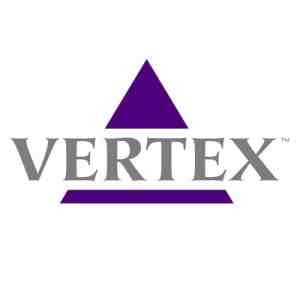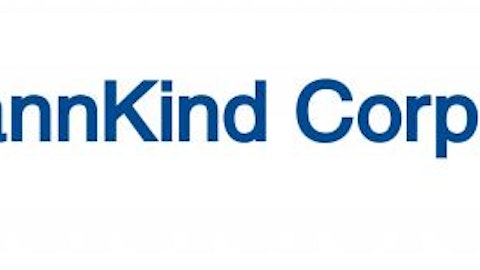If you’ve ever taken the time to really follow the biopharmaceutical sector, you know very well that failures are a dime a dozen, and success stories are few and far between. If we were to look back over the past three years, we would have no shortage of failed launches and mis-priced stocks to entertain our curiosity. None might be more infamous than Dendreon Corporation (NASDAQ:DNDN)‘s metastatic prostate cancer immunotherapy known as Provenge.
Priced at $93,000, this treatment proved pricier than its peers, and many insurers simply chose not to cover the procedure, leaving many physicians unwilling to prescribe the course of treatment. Originally slated by Wall Street prognosticators to bring in peak sales of $3 billion to $4 billion, Dendreon Corporation (NASDAQ:DNDN) recently announced in its second-quarter results that Provenge sales would actually fall on a year-over-year basis. Current annual sales of the drug are roughly 10% of the low end of those previous peak sales estimates more than three years after its approval.
Two decades ago, getting a drug approved by the Food and Drug Administration, which looked at far fewer drugs each year than it does now, was the biggest sticking point to success. Today, drug development and approval remains the costliest component in the process of bringing a drug to pharmacy shelves — but it’s really only half the battle. Nowadays, successfully marketing and pricing of a drug is just as important, if not more important, than the actual development and approval process.
The rise of the fastest growing drug in history
Some drugs, though, find the sweet spot of success, including its target patient and physician population, and pricing point, with relative ease. Enter Vertex Pharmaceuticals Incorporated (NASDAQ:VRTX) which, prior to May of 2011, had no FDA-approved drugs on the market. That all changed on May 23, 2011, however, with the Food and Drug Administration approving Incivek, the company’s intravenous hepatitis-C therapy to be given with interferon.

Initial estimates of Incivek’s peak sales were astronomical, with some figures calling for sales as high as $5 billion. But, even blockbusters in the past have taken time to get their foot in the door and ramp up sales. Little did investors or analysts understand just how special of a drug Incivek was about to become.
By the end of September 2011, less than four months following its approval and launch, Incivek had brought Vertex Pharmaceuticals Incorporated (NASDAQ:VRTX) $494.1 million in revenue. The news is even more stunning when taken in the context that Merck & Co., Inc. (NYSE:MRK) had a competing hepatitis-C drug named Victrelis that was approved by the FDA just 10 days prior to Incivek, and it completely left Victrelis in the dust. To put this in another context… although these two hepatitis-C therapies were approved at essentially the same time, Victrelis brought in just $502 million in all of 2012, while Incivek was able to generate the same amount of revenue in a little more than three months following its launch.
Source: Vertex Pharmaceuticals Incorporated (NASDAQ:VRTX) 10-Q’s.
By the end of fiscal 2011 (the end of December for Vertex), Incivek had delivered $950.9 million in cumulative product sales in just six months and a few days. During the first quarter of 2012, it would go on to become the fastest drug ever to reach $1 billion in sales from its launch, and delivered $1.16 billion in net product revenue in 2012.
The sobering fall of Incivek
But, the sobering reality of game-changing drugs is that one way or another, the good times can’t last forever. For Incivek, analysts were amazed at how quickly the drug took off from its launch and, I believe, they were completely caught off guard at how quickly sales evaporated once it appeared that revolutionary new hepatitis-C therapies were on the horizon.
In clinical studies, Incivek delivered a sustained virologic response (SVR) (i.e., non-detectable levels of the hepatitis-C virus) in 79% of patients treated with the drug after 24 weeks. Based on its varying studies, this was 20%-45% better than the standard of care at the time. Unfortunately, Incivek is a drug designed to be administered with interferon, which can cause flu-like symptoms in patients for up to 48 weeks.
This is where Gilead Sciences, Inc. (NASDAQ:GILD) and AbbVie Inc (NYSE:ABBV) saw their opportunity to not just knock on the door, but bust down the IV-barriers to hepatitis-C therapy by introducing an all-oral therapy.
Gilead’s promising hep-C compound, sofosbuvir, proved far superior to the placebo in four late-stage trials, delivering an impressive 90% SVR in genotype 1 patients, while also outperforming the placebo in less common forms of the hep-C genotype. Sofosbuvir is currently under review by the FDA and could receive approval before the year is out. Peak sales estimates of the drug are calling for sales to reach approximately $6 billion.
AbbVie Inc (NYSE:ABBV) also has an equally impressive hep-C drug in the works. Its trio of drugs delivered a 97% SVR in mid-stage trials (its patient subset was much larger than Gilead’s mid-stage trial which produced a 100% SVR), and could prove just as effective, if not more so, than Gilead Sciences, Inc. (NASDAQ:GILD)’s sofosbuvir.
With the undeniable truth that oral therapies are soon coming to market, patients and even physicians are holding out for these treatments that offer far fewer, and much less serious, side effects. In Vertex Pharmaceuticals Incorporated (NASDAQ:VRTX)’s most recent quarterly results, released at the end of July, it reported that Incivek sales plummeted 52.4% from the year-ago period to just $156 million, and fell 24% just from the previous quarter!
Source: Vertex Pharmaceuticals 10-Q’s.
Based on its current rate of contraction, and the expectation that sofosbuvir and AbbVie’s trio could make it to market within the next 12 months, Incivek could, in my best estimate, see another 50% of its sales evaporate by the end of 2014.
Not all hope is lost
The good news for Vertex Pharmaceuticals Incorporated (NASDAQ:VRTX) shareholders is that all hope isn’t lost. Sales for Incivek may be dropping at an incredible rate, but expectations for Kalydeco, its cystic fibrosis drug, and its remaining CF pipeline, are soaring. In the same quarter that Incivek sales widely missed estimates, Vertex boosted its annual sales outlook for Kalydeco.
The key takeaway here for you as an investor in the biotechnology sector is that complacency is punished in almost every instance. A biotech investor needs to understand the possible competitors to new drugs in terms of what’s on the horizon, and how far out the market approval of its peers might be. Knowing your competition is an integral component of investing in biotech. Luckily for current shareholders, Kalydeco and Vertex Pharmaceuticals Incorporated (NASDAQ:VRTX)’s cystic fibrosis pipeline is saving their behinds… but others may not be so lucky.
The article The Rise and Fall of the Fastest Growing Drug in the World originally appeared on Fool.com and is written by Sean Williams.
Fool contributor Sean Williams has no material interest in any companies mentioned in this article. You can follow him on CAPS under the screen name TMFUltraLong, track every pick he makes under the screen name TrackUltraLong, and check him out on Twitter, where he goes by the handle @TMFUltraLong.The Motley Fool owns shares of Dendreon and recommends Gilead Sciences and Vertex Pharmaceuticals.
Copyright © 1995 – 2013 The Motley Fool, LLC. All rights reserved. The Motley Fool has a disclosure policy.






